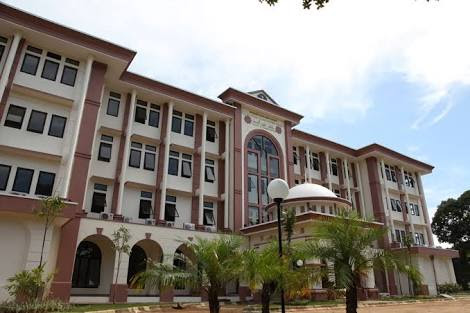THE EFFECTIVENESS OF THE APPLICATION OF BLENDED LEARNING TO SUPPORT THE PROFESSIONALISM OF MATHEMATICS LECTURERS
EFEKTIVITAS PENERAPAN BLENDED LEARNING UNTUK MENDUKUNG PROFESIONALISME DOSEN MATEMATIKA
Abstract
Investigations about the effectiveness of the application of blended learning today have been widely studied from the perspective of students. However, there is still little literature and findings on the effectiveness of blended learning in improving the professionalism of lecturers, especially in the field of mathematics. Furthermore, to support the implementation of blended learning, we use the Google Classroom application. Therefore, this study aims to investigate and describe the effectiveness of the application of blended learning to improve the professionalism of mathematics lecturers which includes dimensions of knowledge, beliefs, and attitudes. We used an Action Research design with one group post-test, where data were taken with several classes and the same treatment to achieve the research objectives. We involved two lecturers in the mathematics education study program with 34 students enrolled in the lecture. Furthermore, the research procedure includes three stages, namely preparation, implementation, and filling out data collection instruments. We used descriptive statistical analysis to obtain research objectives in the form of obtaining average scores, maximum values, minimum values, and standard deviations. Finally, the analysis results show: (1) the lecturer's knowledge is in the high category, (2) the lecturer's confidence is in the active category for each meeting, and (3) the expected attitude of lecturers in blended learning is in the positive category, so it can be concluded that the application of blended-learning is effective in improving the professionalism of mathematics lecturers.
Downloads
References
Borba, M. C., Askar, P., Engelbrecht, J., Gadanidis, G., Llinares, S., & Aguilar, M. S. (2016). Blended learning, e-learning, and mobile learning in mathematics education. ZDM - Mathematics Education, 48(5). https://doi.org/10.1007/s11858-016-0798-4.
Cevikbas, M., & Kaiser, G. (2020). Flipped classroom as a reform-oriented approach to teaching mathematics. ZDM - Mathematics Education, 52(7), 1291–1305. https://doi.org/10.1007/s11858-020-01191-5.
Clarke, D., & Hollingsworth, H. (2002). Elaborating a model of teacher professional growth. Teaching and Teacher Education, 18(8), 947–967. https://doi.org/10.1016/S0742-051X(02)00053-7.
Goos, M., O’Donoghue, J., Ni Riordain, M., Faulkner, F., Hall, T., & O’Meara, N. (2020). Designing a national blended learning program for “out-of-field” mathematics teacher professional development. ZDM - Mathematics Education, 52(5), 893–905. https://doi.org/10.1007/s11858-020-01136-y.
Helgevold, N., & Moen, V. (2015). The use of flipped classrooms to stimulate students’ participation in an academic course in initial teacher education. Nordic Journal of Digital Literacy, 2015(1), 29–42. https://doi.org/10.1177/1049732305276687.
Herrington, A., Herrington, J., Hoban, G., & Reid, D. (2009). Transfer of online professional learning to teachers’ classroom practice. Journal of Interactive Learning Research, 20(2), 189-213. Retrieved from https://www.learntechlib.org/p/26126/.
Hew, K. F., & Cheung, W. S. (2015). Using blended learning: Evidence-Based Practices. British Journal of Educational Technology, 46(3), E9–E10. https://doi.org/10.1007/978-981-287-089-6.
Hollebrands, K. F., & Lee, H. S. (2020). Effective design of massive open online courses for mathematics teachers to support their professional learning. ZDM - Mathematics Education, 52(5), 859–875. https://doi.org/10.1007/s11858-020-01142-0.
Luebeck, J., Roscoe, M., Cobbs, G., Diemert, K., & Scott, L. (2017). Re-envisioning professional learning in mathematics: teachers’ performance, perceptions, and practices in blended professional development. International Journal of Technology and Teacher Education, 25(3), 273-299. Retrieved from https://www.learntechlib.org/p/173347/.
Martinez, S., Guinez, F., Zamora, R., Bustos, S., & Rodriguez, B. (2020). On the instructional model of a blended learning program for developing mathematical knowledge for teaching. ZDM - Mathematics Education, 52(5), 877–891. https://doi.org/10.1007/s11858-020-01152-y.
Osguthorpe, R. T., & Graham, C. R. (2003). Blended learning environments: Definitions and directions. Quarterly Review of Distance Education, 4(3), 219-227.
Powell, C. G., & Bodur, Y. (2019). Teachers’ perceptions of an online professional development experience: Implications for a design and implementation framework. Teaching and Teacher Education, 77. https://doi.org/10.1016/j.tate.2018.09.004.
Qian, Y., Hambrusch, S., Yadav, A., & Gretter, S. (2018). Who needs what: Recommendations for designing effective online professional development for computer science teachers. Journal of Research on Technology in Education, 50(2). https://doi.org/10.1080/15391523.2018.1433565.
Renninger, K. A., Cai, M., Lewis, M. C., Adams, M. M., & Ernst, K. L. (2011). Motivation and learning in an online, unmoderated, mathematics workshop for teachers. Educational Technology Research and Development, 59(2). https://doi.org/10.1007/s11423-011-9195-4.
Taranto, E., & Arzarello, F. (2020). Math MOOC unito: an Italian project on MOOCs for mathematics teacher education, and the development of a new theoretical framework. ZDM - Mathematics Education, 52(5), 843–858. https://doi.org/10.1007/s11858-019-01116-x.
Copyright (c) 2024 Dwi Risky Arifanti, Alauddin, Hengki

This work is licensed under a Creative Commons Attribution 4.0 International License.

